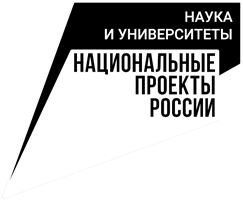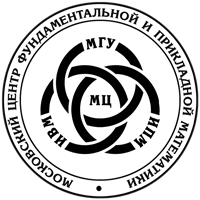Организационный комитет семинара
| Руководители: |
чл.-корр. РАН В.Н.Лыкосов (ИВМ РАН, НИВЦ МГУ); д.ф.-м.н. В.М.Степаненко (НИВЦ МГУ, Географический ф-т МГУ) |
| Секретарь: |
А.В.Дебольский (НИВЦ МГУ, ИФА РАН). |
ПРОГРАММА СЕМИНАРА
17:15
| Denis E. Sergeev | Department of Mathematics, College of Engineering, Mathematics, and Physical Sciences, University of Exeter, UK |
| F. Hugo Lambert | Department of Mathematics, College of Engineering, Mathematics, and Physical Sciences, University of Exeter, UK |
| Nathan J. Mayne | Department of Astrophysics, College of Engineering, Mathematics, and Physical Sciences, University of Exeter, UK |
| Ian A. Boutle | Department of Astrophysics, College of Engineering, Mathematics, and Physical Sciences, University of Exeter, UK Met Office, Fitzroy Road, UK |
| James Manners | Met Office, Fitzroy Road, UK Global Systems Institute, University of Exeter, UK |
Overcast on TRAPPIST-1e: simulations of convection on rocky exoplanets
We now know that exoplanets - planets orbiting stars other than the Sun - are ubiquitous and diverse. Atmospheres of these distant worlds present an opportunity to answer fundamental questions about their evolution and dynamics, and even their potential for harbouring life. Detecting an exoplanet with a habitable atmosphere is becoming more and more likely with the imminent launch of more powerful telescopes, such as the James Webb Space Telescope (2021) and the Extremely Large Telescope (2025); joined by the end of the decade by the Habitable Exoplanet Observatory or the Large UV/Optical/IR Surveyor. In order to make the best use of future observational data, it is imperative to improve our theoretical understanding of extraterrestrial atmospheres and consider all possible physical and chemical processes. It is particularly important to study terrestrial exoplanets orbiting M-dwarfs, because M-dwarf stars are the most numerous stars in our galaxy and offer a higher chance for temperate planets to be detected around them. Such exoplanets are expected to be tidally locked to their host stars and thus create a climate that is likely completely different to that of Earth.
Convection is an important driver of energy redistribution in planetary atmospheres. By forming clouds and interacting with small-scale turbulence, convection is a key part of complex feedback mechanisms in the climate system. In my work, I focus on the climate of tidally locked rocky exoplanets and its sensitivity to the representation of moist convection in a climate model. I use a versatile 3D general circulation model, the UK Met Office Unified Model, to simulate hypothetical climates of two confirmed terrestrial exoplanets (e.g. TRAPPIST-1e) and show that convection can affect the climate of the day side, and even more so, the night side. I then advance my analysis by doing high-resolution experiments with explicit convection, and find that global models have biases in cloud structure and their radiative effects. The explicit convection experiments also indicate that global models may overestimate the heat redistribution between the day side and the night side of the planet.
In my talk, I will introduce the audience to the young and exciting field of exoplanets and talk about research carried out in the Exeter Exoplanet Theory Group, before showing some recent results from a model intercomparison for TRAPPIST-1e and presenting my high-resolution simulations of convection.
Заседание семинара пройдет в форме вебинара на платформе Zoom.
Ссылка на конференцию Zoom (6 мая с 17:15):
Topic: семинар "Математическое моделирование геофизических процессов: прямые и обратные задачи".
Time: May 6, 2021 05:15 PM Moscow
Join Zoom Meeting
https://us02web.zoom.us/j/87697531493?pwd=Z2N2QkorU1hRSUQ4YzF3VEZicHVTZz09
Meeting ID: 876 9753 1493
Passcode: 925431
Инструкции по установке и использованию платформы Zoom доступны, например, здесь:
https://support.zoom.us/hc/ru/articles/201362033-Начало-работы-на-ПК-и-Mac
Для связи по всем вопросам, касающимся работы семинара, обращайтесь к ученому секретарю Андрею Владимировичу Дебольскому по адресу and.debol@srcc.msu.ru

